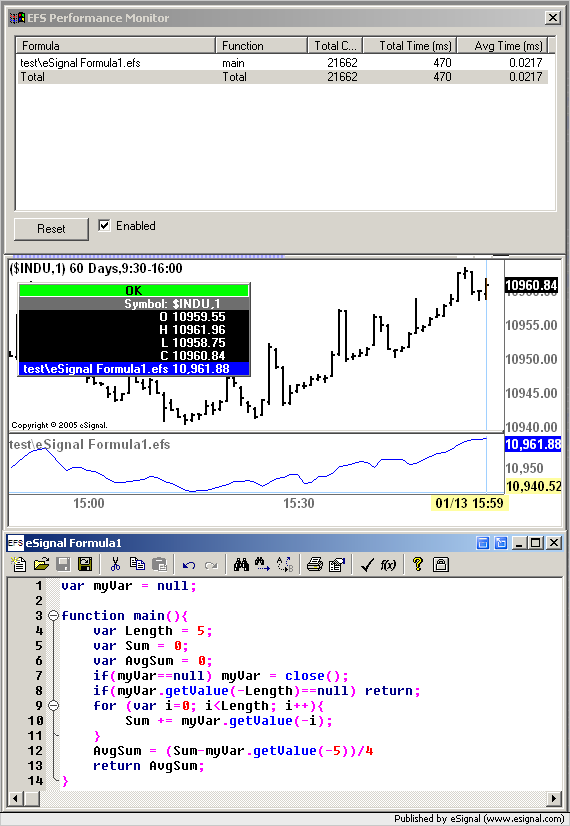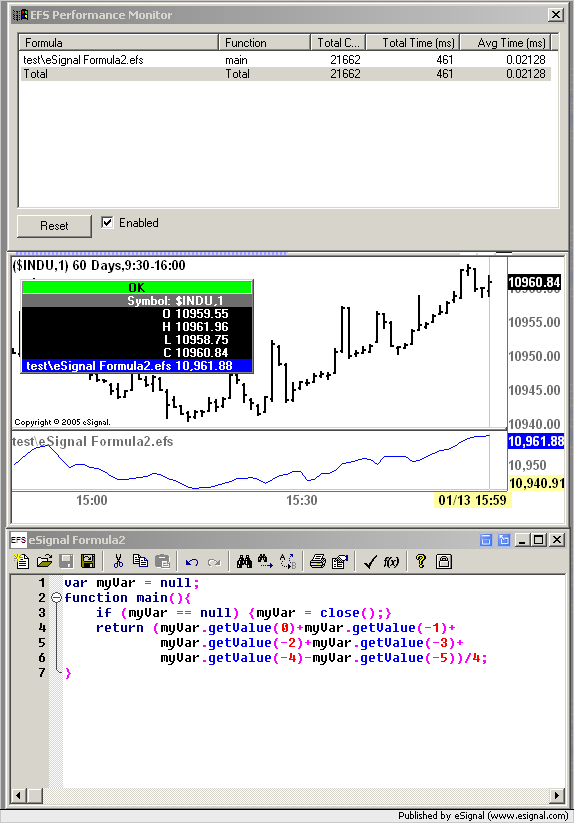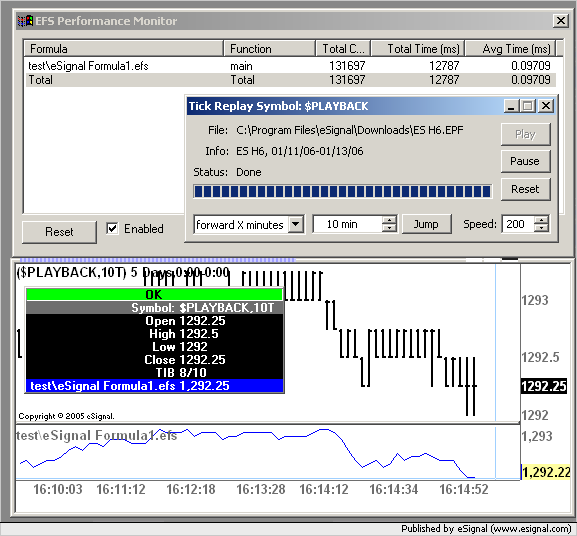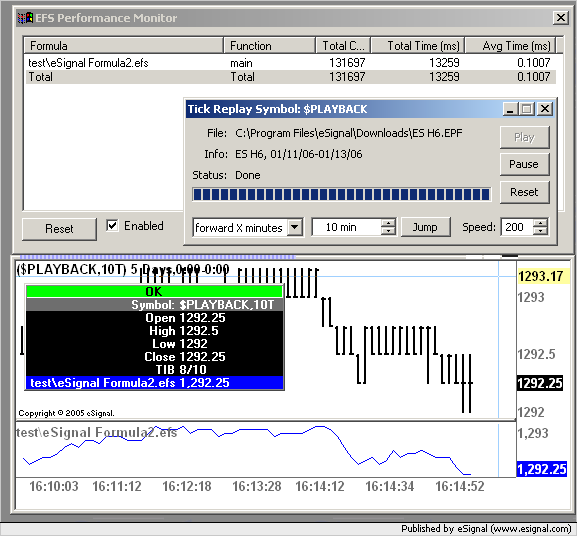Is there a "Summation Function" in efs to short and speedup my code?
e.g.
PHP Code:
var myVar = null;
function main()
{
if (myVar == null) {myVar = close();}
return (myVar.getValue(0)+myVar.getValue(-1)+myVar.getValue(-2)+myVar.getValue(-3)+myVar.getValue(-4)-myVar.getValue(-5))/4;
}
PHP Code:
var myVar = null;
function main()
{
if (myVar == null) {myVar = close();}
return (Summation(myVar.getValue(),5) - myVar.getValue(-5))/4;
}





Comment